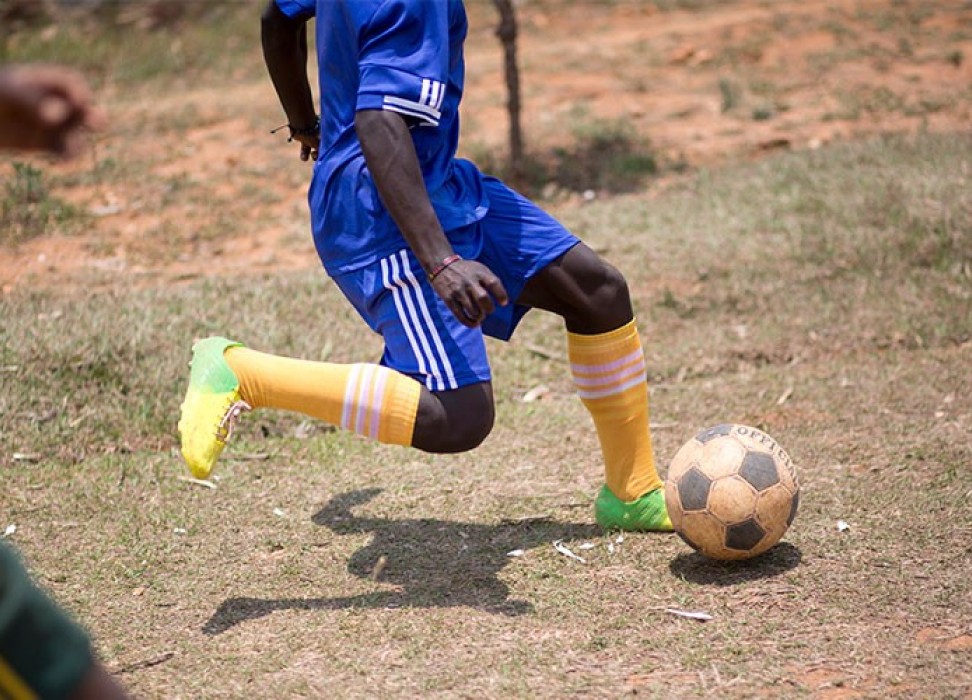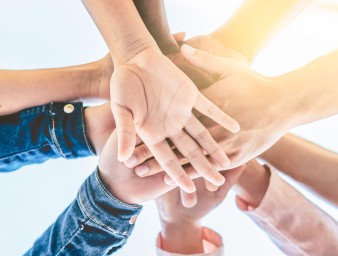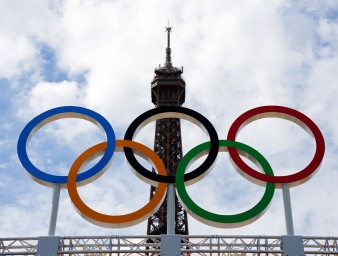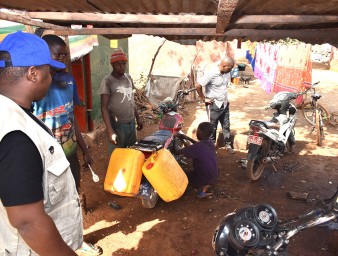When sport becomes a dangerous playing field for children
22 November 2019

The current state of child rights in sport – alongside a range of other human rights issues - is being discussed this week at the 2019 Sporting Chance Forum in Geneva, Switzerland.
Ahead of the Forum, UN Special Rapporteur on the sale and sexual exploitation of children Maud de Boer-Buquicchio released a user-friendly version of her 2018 report, entitled Playing it Safe.
“From very young ages children take to a playing field, dive into a pool, tumble on a floor mat, run on a track … in pursuit of fun, fitness, companionship and comradery,” says de Boer-Buquicchio. “Whether the dream is big and life-changing, or simply the joy of everyday sport, the life of a child is forever altered if that child experiences sexual abuse or exploitation. Dreams are shattered, joy eroded, hearts and minds and bodies destroyed.”
The publication looks at a range of child rights violations – including trafficking, abuse, exploitation and sale - in the context of sports. While many findings of the report are disturbing, there are also encouraging examples of the ‘world of sport’ taking action to protect children and to remedy the harms that have already been done to them.
“In sport at all levels, children have a right to be safe and secure. And most children are,” added de Boer-Buquicchio. “However, many are unprotected in their sporting activities. Children are most at risk in such situations as the locker-room, the playing field, trips away, the coach’s home or car and social events.”
“Pervasive” sexual abuse of children
According to the report, sexual exploitation of children in sport is rife, pervasive, widespread and it is continuing to go unchecked. The fear of being outed, shamed, disbelieved or blamed keeps victims silent. Other children are simply not able to recognise abusive relationships.
For de Boer-Buquicchio, it is frequently the power dynamics and the lack of independent oversight inherent in the sporting industry that render children vulnerable to the horrific tragedy of child abuse.
Multiple forms of exploitation
While sexual abuse is rife, many other human rights violations against children persist. The report examines examples including trafficking of young football players from West Africa and Latin America to European and Asian clubs, child labour (in particular during the build-up to major sporting events), child abuse and economic exploitation.
“No sports setting should be immune from scrutiny and accountability for these heinous crimes against children,” said de Boer-Buquicchio. “It’s vital that various sports organisations standardise their safeguards and policies to avoid inconsistencies and strengthen the protection of children. Background checks of any individual working with children should become mandatory for all sports institutions.”
De Boer-Buquicchio is strongly advocating for the creation of accessible and child friendly independent reporting mechanisms to break the silence around child victims.
Mary Harvey, CEO of the Centre for Sport and Human Rights, supported the findings of the report: “Most kids play sport for recreation and fun. For some it may be their chosen future career. In all cases, they have the right to participate in sport in a safe and enjoyable environment. But this is not always the case. The challenge is to ensure States and all others involved implement their existing legal obligations and keep children safe.”
Prevention and remedy: call for more action by States
According to de Boer-Buquicchio, the best interests of the child are crucial in guiding any sports programme. She is calling on States to ensure independent reporting and oversight mechanisms in order that complaints can be filed without fear of reprisal. She is urging them to ratify and put in place international laws that protect children, and to have clear and sweeping national laws that also provide the necessary protection.
“It’s vital that sports organisations put in place measures to identify, prevent, mitigate and address such abhorrent crimes. There are concrete recommendations for further actions that can be taken by government officials, as well as by coaches, parents, member of a club or team, and sport leaders.,” she concluded.
The 2019 Sporting Chance Forum – held on 21 and 22 November – will bring together hundreds of delegates to discuss ways forward to achieve a world of sport that fully respects human rights. This year’s Forum includes opening remarks by the UN High Commissioner for Human Rights, Michelle Bachelet.



